Understanding the Metaverse: A Comprehensive Overview for Project Managers
The term metaverse has rapidly become a buzzword in the tech industry, with implications that stretch into various sectors. Project managers, in particular, need to grasp the potential impact of the metaverse on their field. In essence, the metaverse represents a collective virtual shared space, created by the convergence of virtually enhanced physical reality and physically persistent virtual space. It’s a space where the digital and physical worlds meet, made possible by the advent of augmented reality (AR) and virtual reality (VR) technologies.
Core Components of the Metaverse
For project managers looking to navigate the metaverse, understanding its core components is crucial. It is fundamental to recognize the multi-faceted nature of this space:
- Immersive Realities: VR and AR are the building blocks of the metaverse, enabling users to immerse themselves in digital environments or overlay digital information onto the physical world.
- Digital Economy: Cryptocurrencies and non-fungible tokens (NFTs) play significant roles in the transaction and ownership systems within the metaverse.
- Interoperability: The concept that allows for assets and information to traverse between various virtual environments seamlessly.
- Social Interaction: Platforms within the metaverse often focus on enabling rich social interactions, mimicking and extending real-world social structures.
These components create a complex ecosystem that project managers must understand in order to lead initiatives effectively in this emerging space.
Challenges and Opportunities for Project Management in the Metaverse
Project management within the metaverse presents unique challenges and opportunities. The dynamic nature of the virtual world demands that managers possess a proficiency in both traditional and agile project management methods. Adaptability to new tools, techniques, and collaboration methods in a constantly changing environment is also necessary.
- Virtual Collaboration: Project teams might operate in virtual shared spaces, harnessing avatars and digital workspaces for planning and execution.
- IP and Data Security: Protecting intellectual property and sensitive information takes on new complexity in the metaverse.
- Resource Management: The digital nature of the metaverse requires managers to reevaluate resource allocation, with a focus on digital assets and talent specialized in emerging technologies.
In addition to these challenges, the global reach of the metaverse opens up expansive opportunities for project management. Collaboration can become borderless, and projects can leverage a wealth of diverse input and creativity, unhindered by geographic limitations.
The Role of Project Managers in Shaping the Metaverse
As the metaverse continues to evolve, project managers are positioned to play a significant role in shaping this new frontier. They must be visionary leaders, anticipating future trends and guiding their teams to develop new solutions for this virtual environment. They also need to be strategic in their approach to managing projects in a space that is at once boundless but also rife with detailed complexity. Skilled project managers will likely find themselves at the forefront of innovative developments, piloting projects that set the stage for what the metaverse will become.
- Strategic Planning: Developing long-term strategies to navigate the complexities of the metaverse is crucial for project success.
- Innovation Management: Project managers will need to foster an environment conducive to innovation to harness the creative potential of the metaverse.
- Adapting to New Technologies: Being conversant with new technologies and remaining agile in their implementation will be key for project managers.
Understanding the metaverse through this comprehensive overview equips project managers to adapt and succeed in leading the projects of the future.
How Remote Project Management is Evolving with the Metaverse
Understanding the Fusion of Remote Project Management and the Metaverse
The integration of remote project management with the Metaverse is revolutionizing the way teams collaborate and manage projects. The Metaverse, a virtual shared space created by the convergence of virtually enhanced physical reality and physically persistent virtual spaces, is providing new dimensions for project management. This new environment facilitates a hybrid workspace where remote teams can interact more intuitively with digital assets and project workflows, akin to in-person experiences. It transforms traditional project management tools into immersive experiences, making the understanding and navigation of complex projects simpler and more engaging for teams spread across various geographies.
The Advantages of Metaverse-Enabled Remote Project Management
One of the core benefits of the confluence between remote project management and the Metaverse is an enhanced level of team engagement and collaboration. In the virtual space, remote teams can engage with 3D models, elaborate project plans, and real-time data analytics in a way that mimics physical interactions. Agile methodologies, commonly applied in project management, are given a new vitality within the Metaverse. Stand-up meetings, sprint planning, and retrospectives can occur within immersive environments that promote better understanding and retention of information.
- Improved Communication: Virtual Reality (VR) meetings within the Metaverse can lead to clearer communication, overcoming the limitations of email and messaging apps.
- Enhanced Visualization: Complex data and project timelines can be visualized in three-dimensional space, improving stakeholder understanding and input.
- Increased Productivity: By offering an interactive and engaging platform, the Metaverse can mitigate the fatigue associated with traditional video conferencing tools, thereby possibly increasing productivity.
Adopting New Tools and Technologies
As remote project management merges with the Metaverse, project managers must adapt by acquiring new tools and technologies. Platforms such as Metaverse-specific project management apps are being developed to help managers plan, execute, and monitor projects in a virtual environment. These tools offer functionalities like virtual whiteboards, AI-driven analytics, and holographic displays of project metrics. The integration of Internet of Things (IoT) devices enables a seamless flow of real-time data into the Metaverse, allowing remote teams to respond quickly to changes and updates in the project’s trajectory.
- Virtual Project Control Rooms: Teams can create control rooms for comprehensive oversight of a project’s status, health, and ongoing activities.
- AI-Powered Assistants: Virtual assistants powered by AI can automate routine tasks, set reminders for deadlines, and even predict project risks by analyzing vast amounts of data.
- Integration with Existing Systems: It is vital to integrate Metaverse environments with existing project management systems to ensure a smooth transition and continuity of workflows.
The Impact of the Metaverse on Project Management Culture
The intersection of remote project management and the Metaverse also comes with cultural implications. Project managers and teams are exposed to a culture of inclusivity and limitless collaboration potentials, extending beyond geographic and physical boundaries. This culture encourages a sense of presence and participation, which can lead to higher levels of team satisfaction and a stronger shared vision for project objectives. However, this also requires a shift in mindset from traditional management styles to one that leverages the unique capabilities of the Metaverse while maintaining best project management practices.
- Building a Global Community: The Metaverse can connect professionals from across the world, creating a melting pot of ideas and fostering diversity in problem-solving approaches.
- Continuous Learning and Development: Project management professionals must engage in continuous learning to keep up with evolving Metaverse technologies and methodologies.
- Cybersecurity Considerations: As with any digital transformation, the Metaverse introduces new challenges in data security, requiring robust cybersecurity measures to protect sensitive project information.
The Tools and Platforms Powering Metaverse Project Management
The metaverse represents a significant leap forward in how we interact with digital environments, and it demands a new set of tools for effective project management. As projects become more complex and sprawling across virtual spaces, the requirements of project management too undergo a transformation. The traditional tools often fall short when it comes to handling the dynamic and three-dimensional nature of metaverse environments. This is where specialized tools and platforms come in, designed to facilitate collaboration, resource management, and oversight within these immersive digital worlds.
Collaboration Tools Tailored for the Metaverse
One of the pillars of successful project management in the metaverse is robust collaboration. Virtual reality (VR) platforms enable project teams to meet and work within the metaverse itself. For example, tools like VR chatrooms and meeting spaces allow for real-time, face-to-face interaction that transcends geographical limitations. These platforms also integrate with project management software, adding a layer of productivity to the immersive experience. Some tools are even beginning to use AI to facilitate communication and idea exchange, ensuring that language barriers don’t hinder collaborative efforts.
Resource and Task Management in the Virtual Realm
Task delegation and resource allocation are key components of project management, and they are uniquely challenging in the metaverse context due to the virtual nature of resources. Platforms that offer 3D visualization of project timelines and resources enable managers to gain a granular understanding of their project’s status. These tools may include features such as holographic dashboards or virtual whiteboards that allow for interactive and engaging task management. By bridging the gap between the physical and virtual, these platforms support a more intuitive and immersive approach to project tracking and resource management.
Integration and Interoperability of Management Platforms
A common challenge in the nascent metaverse is the lack of standardization, which can lead to issues with integration and interoperability between different tools and platforms. Project management tools that prioritize integration capabilities are essential for a seamless management experience. These may include APIs that connect the metaverse project management platform with external data sources, CRMs, and other software solutions. The goal is to create an ecosystem where data can flow freely between the metaverse and other systems, thus enabling a single source of truth for project managers and stakeholders.
In conclusion, while the metaverse continues to develop and expand its capabilities, the need for sophisticated tools and platforms for project management within this space becomes increasingly apparent. These tools not only need to keep pace with the unique demands of managing virtual projects but also push the boundaries of what’s possible in project collaboration, resource management, and platform interoperability. As the metaverse grows, so too will the sophistication of the project management toolbox, signaling an exciting future for teams looking to leverage the full potential of these immersive digital environments.
Best Practices for Leading a Project Team in the Metaverse
The Metaverse, with its expansive and immersive virtual spaces, promises a new frontier for collaborative work. Leading a project team in this digital realm requires an innovative approach to management. Here, we explore the best practices for steering your team towards success in the Metaverse.
Establish Clear Communication Protocols
Effective communication is the cornerstone of any successful project team, especially in the Metaverse. To optimize team interactions:
- Choose the right communication tools that are universally accessible and easy to use for all team members.
- Set specific times for virtual meetings to ensure regular and consistent check-ins.
- Develop a structured communication plan that includes the use of virtual reality (VR) meeting rooms, chat applications, and project management software.
By establishing clear communication protocols, you create a strong foundation for your team’s collaborative efforts in the virtual workspace.
Promote a Shared Vision and Goals
Unity of purpose is crucial when managing teams in the Metaverse. To foster a shared vision:
- Articulate the project’s objectives in a clear and compelling manner to create a shared understanding among team members.
- Utilize virtual reality to simulate project outcomes that visually demonstrate the goals to be achieved.
- Regularly reiterate the team’s objectives during virtual meetups to maintain focus and enthusiasm.
A shared vision galvanizes the team’s commitment and aligns their efforts towards the desired outcomes in the Metaverse.
Cultivate an Inclusive and Positive Culture
The Metaverse transcends geographical boundaries, bringing together diverse individuals to collaborate. Cultivating an inclusive culture is imperative for team cohesion. Encourage:
- Respectful and open-minded interactions that value each team member’s unique contributions.
- Team-building activities within virtual spaces to strengthen relationships and foster camaraderie.
- A supportive environment where feedback is welcomed, and challenges are collectively addressed.
Creating a positive team culture in the Metaverse greatly enhances productivity and job satisfaction, leading to a more successful project outcome.
Leverage the Unique Capabilities of the Metaverse
The Metaverse offers unique tools and features that can be leveraged to improve team performance:
- Use virtual spaces for innovative problem-solving sessions that use 3D modeling and simulation.
- Implement virtual training programs that take advantage of the Metaverse’s immersive environments for skill enhancement.
- Track progress with integrated project management tools that allow real-time updates and oversight within the virtual space.
Taking full advantage of the Metaverse’s capabilities can lead to sophisticated collaboration and more dynamic project management.
Case Studies: Success Stories of Project Management in the Metaverse
In the burgeoning era of virtual reality, project management in the Metaverse has become a pivotal point of interest for businesses looking to innovate and expand their capabilities. The realm of the Metaverse provides a unique and immersive platform where collaboration and execution can happen across continents without the barriers of the physical world. Various organizations have embarked on this journey with exceptional results, providing concrete case studies that showcase both the challenges and the successes of managing projects in this novel environment.
One hallmark of success in the field comes from a tech company that utilized the Metaverse’s potential to conduct virtual product development meetings. Their objective was to streamline communication and enhance the visualization of product prototypes. By creating a shared virtual space, team members could manipulate and interact with 3D models, providing immediate feedback and driving rapid iteration. This case study highlighted the reduced time-to-market for new products and underlined the value of immersion and interaction that the Metaverse affords. The efficiency of virtual prototyping and testing in the Metaverse translated directly into cost savings and a competitive edge for the company.
Enhancing Team Collaboration and Engagement
Another case study features a multinational corporation that leveraged the Metaverse to enhance team collaboration and employee engagement. Faced with the challenge of keeping remote employees connected, they created a metaverse environment that replicated their physical office. This virtual space was not just about replicating a workspace, but enhancing it with tools and features that could only exist in a virtual domain. Interactive dashboards, 3D data visualizations, and real-time collaboration means transcended typical video calls and flat screen-sharing sessions. The result was a significant improvement in team dynamics and a boost in productive collaboration, demonstrating that the Metaverse can effectively bridge the gap between remote work and in-office interaction.
Revolutionizing Client Presentations and Demonstrations
The Metaverse also proved to be a game-changer for client interactions. A creative agency showcased a scenario where they conducted client presentations within virtual worlds that they constructed specifically for each client. These personalized spaces provided clients with an immersive experience that vividly demonstrated the agency’s concepts and ideas. Notably, the agency reported not just an increase in client engagement, but also in the memorability and impact of their presentations. This success story illustrates how project management in the Metaverse can revolutionize client experiences and set new standards in persuasive communication.
Training and development have equally benefited from Metaverse applications, as evidenced by an educational institution’s project management tactics. This institution created a virtual training program designed to simulate real-life scenarios that project managers might face. Learners could engage with these scenarios, make decisions, and see the outcomes of their choices in a risk-free environment. The immersive nature of the Metaverse allowed for better retention of information and improved practical skills among participants. The success of this initiative confirms the significant potential for the Metaverse in creating effective and scalable training tools for project management and beyond.
In conclusion, these case studies serve as promising indicators of the future role of the Metaverse in project management. By harnessing the power of virtual reality, businesses and organizations are not only overcoming traditional barriers but are also unlocking innovative pathways for collaboration, creativity, and customer engagement. As more success stories emerge, it becomes clear that the Metaverse is set to play a central role in shaping the project management landscape.

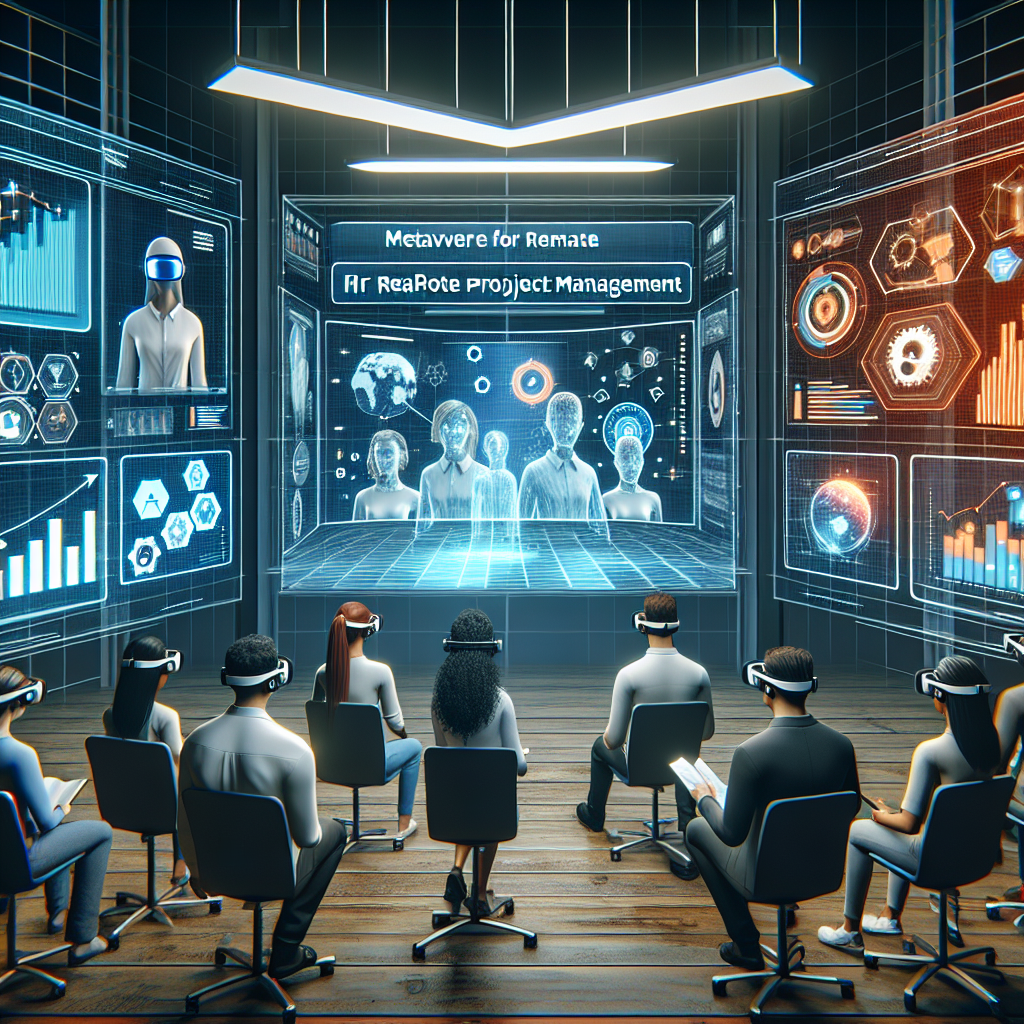
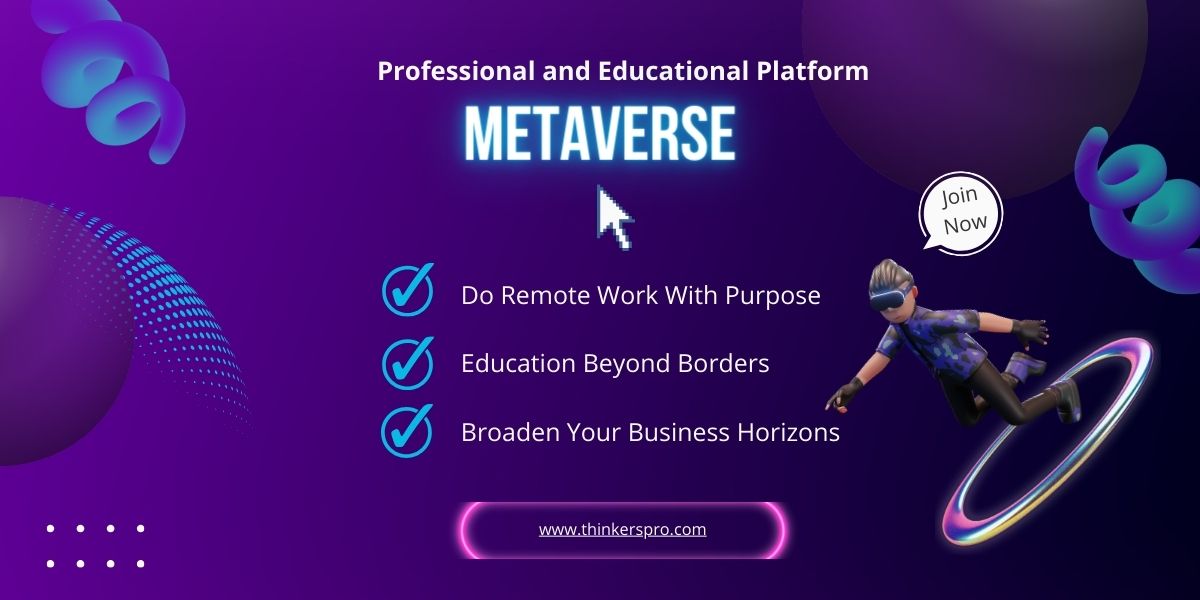


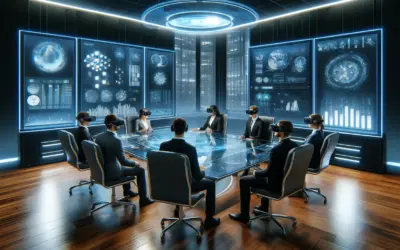

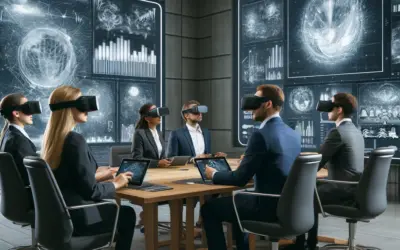

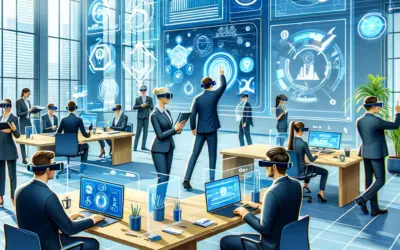



0 comentarios